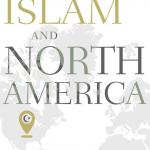Andrew Ter Ern Loke
The Origin of Divine Christology
SNTSMS; Cambridge: CUP, 2017.
Available at Amazon.com
This book is a critique of evolutionary schemes of christological development as well as an argument that the only reason why the early church believed that Jesus was “true God” is because he himself believed so or at least gave that impression. There are good discussions about the nature of divinity in the ancient world and early church, function and being in christology, reiteration of the importance of monotheism and the creation-creature divide in Judaism, exegeses of Phil 2.5-11 and 1 Cor 8.6, and an attempt to prove that the earliest christology was indeed the highest. Loke’s view is that:
If the earliest Christians knew that Christ had himself indicated that he was not divine, or that he did not indicate that he was divine, then it is unlikely that they would have come to the widespread acknowledgment that he was truly divine. On the other hand, the proposal that Jesus had clearly indicated that he regarded himself as truly divine would adequately explain how the highest Christology of the earliest Christians could have been held by even the more traditionalist Jewish Christians. Because they were Christians, they would all have agreed that what Christ indicated was what God demanded that they believe (p. 22).
I’m broadly supportive of Loke’s theory, and I’ve argued similarly in How God Became Jesus and Jesus, the Eternal Son, that Jesus saw himself as embodying the presence of YHWH, exercising divine prerogatives like the forgiveness of sins and judgment, and believed himself in a position of sovereignty equal to YHWH. Jesus certainly and I think deliberately blurred the lines between God as author of salvation and God’s agent of salvation. The memory of Jesus’s claims about himself, as well as the exegesis and experience of the early church, led to their view of Jesus as divine, and divine in the sense of part of the divine identity, which is why Jesus was worshipped and venerated. I don’t think this emerged simply from belief in the resurrection, started with adoptionism and ended with incarnation, nor through a syncretism of alien forces rooted in Greco-Roman religion.
Still, there are a few things I wish Loke did in this book. More on diversity of early christologizing, certainly by the end of the first century and in beginning of the early second century, you have Jesus’s divinity taken in different directions by docetists and even those with an angelomorphic christology too. There was diversity on when and how Jesus was divine! Also, I would hasten to add that not everything the early church believed about Jesus necessarily has to be authorized by the historical Jesus himself. For example, believing that Jesus is the “prince/leader” (Acts 3:15; 5:31; Heb 2:10; 12:2) does not depend upon Jesus claiming the title for himself, rather, what matters is what God has revealed to be true of him (something that I think Bultmann was right about, though he took it in an extreme way so that Jesus’s own self-consciousness was entirely irrelevant).
Otherwise, this is a very fine book, it argues that a high christology is not only early, but was even the christology of Jesus!











